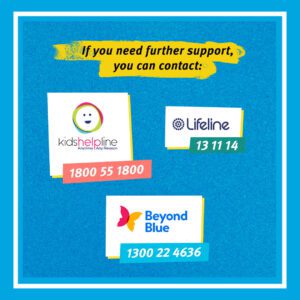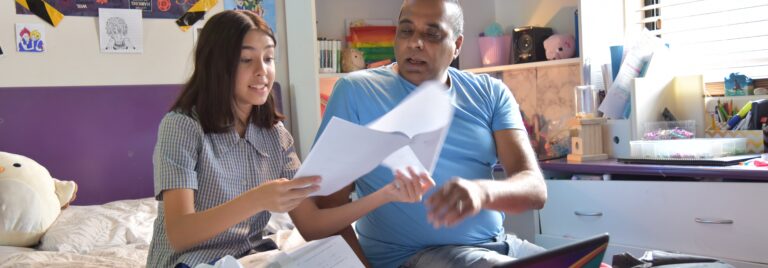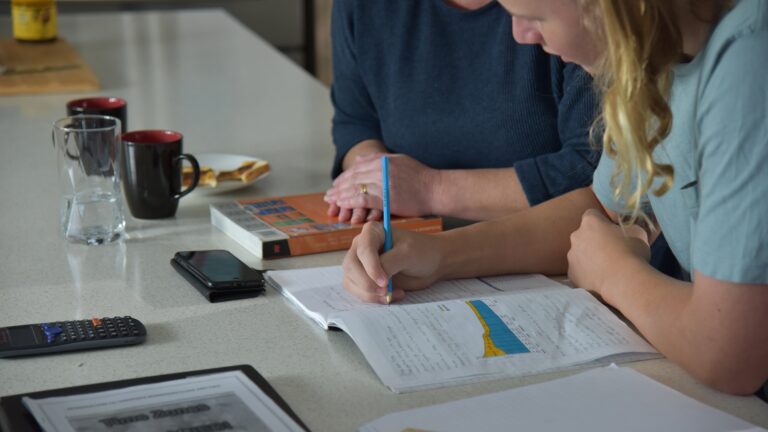Key Points
- For teenagers, failure can feel especially hard as they deal with changes in their bodies, brains and in their lives.
- Encourage your teen to see failure as a chance to learn.
- Talk to your teen about failure so they understand that dealing with failure is part of life.
- While failure can be heard, dealing with failure helps prepare your teen for the adult world.
- If your teen seems unable to recover from failure and is exhibiting warning signs of distress, depression or anxiety, please seek help.
Everyone fails at something some time. But for teenagers, failure can feel especially devastating as they deal with so many changes in their bodies, brains and in their lives. It’s important to help your teen deal with failure and see it as something to learn from so they can build the skills they need to succeed at school and in life.
Keeping failure in perspective
Sometimes, teens who experience a failure can turn a single event – such as getting a D on a Maths test or not getting selected for a sporting team – into something that defines who they are. They may believe they are a failure. Feeling like a failure can become all-consuming and taint a young person’s view of life. If your teen finds themselves in this headspace, they may need your help in shifting their thinking. Here’s some examples of what your teen might say and how you could respond to help them see that a single event does not make them a failure:
I failed at Maths so I must be a failure.
Instead: You failed once but there are still many other things you don’t fail at.
I only got 48% on the Maths test so I’ll probably fail Maths and have to drop out of school.
Instead: You struggled with that one maths test but overall, you are tracking for a B.
I failed the team because I missed an important goal.
Instead: You played a really great game for 95% of the match and just missed one goal. You’ll get another chance in the next match.
I didn’t get an interview for the job and I just know I won’t ever get one.
Instead: You didn’t get that interview but there are still lots of other jobs you can apply for.
I got a C in the exam but that’s still not as good as a B.
Instead: You worked hard, did your best, and got a C – it’s a great result!
Failure helps us learn
Being an adult, and with the benefit of experience, you may already appreciate how failure can help you learn. But for a young person with limited life experience, a failure can seem huge. That’s why it’s so important to encourage your teen to see failures as an opportunity to learn because it’s how they deal with disappointments that will help them succeed. Here’s some things you could say to your teen to help them see failure in a more positive light:
- Everyone fails sometimes – even the most successful people.
- Fear of failure can make you scared to try something new which could mean missing out on valuable new experiences.
- Failure can help you gain knowledge that cannot be gained in any other way.
- Try and see failure as an experience you have on the way to success.
- Dealing with failure teaches you that you can bounce back.
Encourage your child to see a poor exam result or loss in a sporting competition as something of value they can learn from. Talk to them about how such an experience can help them understand what does and doesn’t work and is an opportunity to try a new approach next time. Remind them that people who succeed are those who stick at things and refuse to give up. Explain to them that life is full of ups and downs and it’s how they respond to difficulties and disappointments that will ultimately set them up to succeed.
Failure prepares your teen for the adult world
Your job is to try and bring your teenager safely to the point where they can take on the responsibilities of adulthood. That means knowing when to step in and help and when to stand back and let events unfold. It’s important to give your teen opportunities to handle things on their own; this is how they learn the skills they’ll need to manage in the adult world. This means not shielding your teen from all experiences of failure and instead, exposing them to the reality of life which is that there are ups and downs for everyone. In doing this, it’s important to anticipate how much responsibility your teen is ready to handle and if they need you, be ready to step in and guide them. Equipping your teen to navigate a world of mixed experiences will help them develop the resilience, persistence and resilience they’ll need to thrive as an adult.
Failure is something worth talking about
Some parents avoid talking about a child’s mistakes, preferring to gloss over them and reassure their child that they’ll get it right next time. But this approach does not give a young person a chance to work out what went wrong and decide how they might do things differently next time. If your teen has experienced a failure, it can help to spend some time with them talking about what happened. Pick a time when your teen is calm and open to chatting. Speak to their emotional brain first and affirm their feelings of disappointment. You could say something like, ‘I can understand why you feel disappointed. If you want to talk about it, I’m here to listen.’ If your teen wants to talk about their failure, here are some tips on how to approach the conversation:
- Tell them that everyone makes mistakes – even the most successful people.
- Talk about what they can learn from the situation and how they could approach a similar situation in the future.
- Discuss well-known people who have experienced failure and gone on to succeed. Depending on your teen’s interests, you could talk about an entrepreneur like Richard Branson, an elite athlete such as Michael Jordan, an inventor like Thomas Edison or the author JK Rowling. If you search on the Internet, you’ll find many stories about how successful people have dealt with failure and there’s sure to be someone whose story will mean something to your teen.
- Let your teen know that while they are understandably disappointed, they need to be kind to themselves and not define themselves by this one event.
Support your teen through their disappointment and encourage them to try again. Remind them that in life, there will be many things that require them to pick themselves up and keep going if they want to succeed.
Why recognising effort matters
While success should be celebrated, recognising effort is also important. If your teen can appreciate the value of effort as well as achievement, they will and understand that success and failure can be understood differently for different people. When your teen can see that it’s their effort that counts most, they will be more willing to face the challenge of feeling frustrated and the risk of possible failure. Let your teen know you are proud of them when they choose to have a go at doing something they find difficult, and acknowledge when they put time and effort into learning. Here’s some tips on how you can help your teen approach challenges and keep trying even when things feel hard:
- Focus on grit. Research has found that the key characteristic of success is not IQ or talent but grit – sticking at things even when they are hard. People who succeed are those who stick at things even when they are boring and frustrating.
- Discuss mindsets. A person with a ‘growth mindset’ sees abilities as something you can develop through effort and views failure as an opportunity for growth. On the other hand, a person with a fixed mindset assumes intelligence and talent are fixed – something you are born with – that cannot be changed. Encourage a growth mindset in your teen by celebrating their effort and reminding them that they have some control over what they can learn because they can develop their brain through effort.
- Praise the process. To support a growth mindset, acknowledge the process and the effort your teen is making. Ask questions that focus on the process such as, ‘What is the challenge?’, ‘How do you think you could solve it?’ ‘What resources will you need to solve it?’, ‘Who can help you with this problem?’. And give feedback like, ‘You haven’t been able to solve this problem yet’ or ‘You have used some great ideas to try and solve that problem’ or ‘I’m so proud of the way you’ve been sticking with that maths problem rather than giving up’.
- See the brain like a muscle. Tell your teen to see their brain as a muscle that grows stronger when it learns. Scientists have found that the brain grows more when we learn something new so if your teen is feeling frustrated by trying to learn something new, tell them it means their brain is working hard and they are making progress.
- Explain that finding things hard is not a sign of failure: Explain to your teen that mastering complex tasks takes lots and lots of practice. Whether they are trying to learn their multiplication tables, read more complex books or play a musical instrument, the task will be difficult and take time. Talk about how finding things difficult isn’t a sign of failure but a normal part of the learning process. Reinforce this by giving feedback that focuses on their effort such as, ‘I notice how many new words you tried to pronounce when you were reading that book,’ or ‘I loved listening to you practice the piano and I noticed how you kept at it even when it was hard’ or ‘I can see how well you laid out your maths problem so you could try different ways to solve it.’
- Remember that learning creates learning. Encourage your child to stick at their learning by reminding them that the more they learn, the easier learning will become.
And don’t forget to celebrate the little wins along the way as this will open your teen’s mind to what is possible and motivate them to want to learn more.
Be a role model
Talk to your teen about failures you’ve experienced in your own life and let them see your own struggles, mistakes and failures. It will help them understand that failing at a task, a job or even at a relationship is not the same as failing as a person. Let your teen see you handling disappointments so they know that in life, things don’t always go according to plan and that we all experience disappointment. In being open about your own experiences of failure, you are showing your teen that life goes on and you can learn from your mistakes.
Need help?
While failure and disappointment are part of life and necessary learning experiences, if your teen seems unable to recover from a failure and is exhibiting warning signs of distress, depression or anxiety , then please seek help. Please contact Beyond Blue (1300 22 4636), eheadspace, Lifeline (13 11 14) or KidsHelpline (1800 551 800).

Last Updated: 22 February 2024





